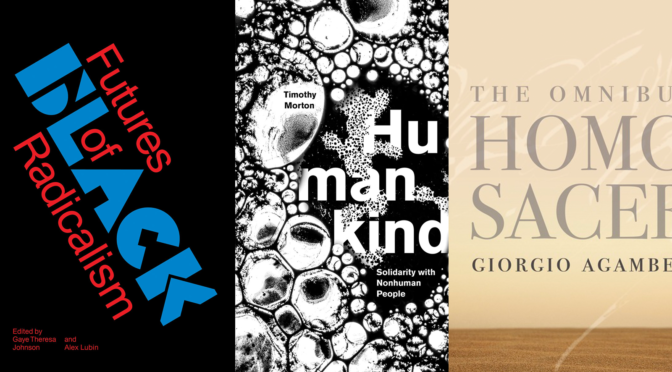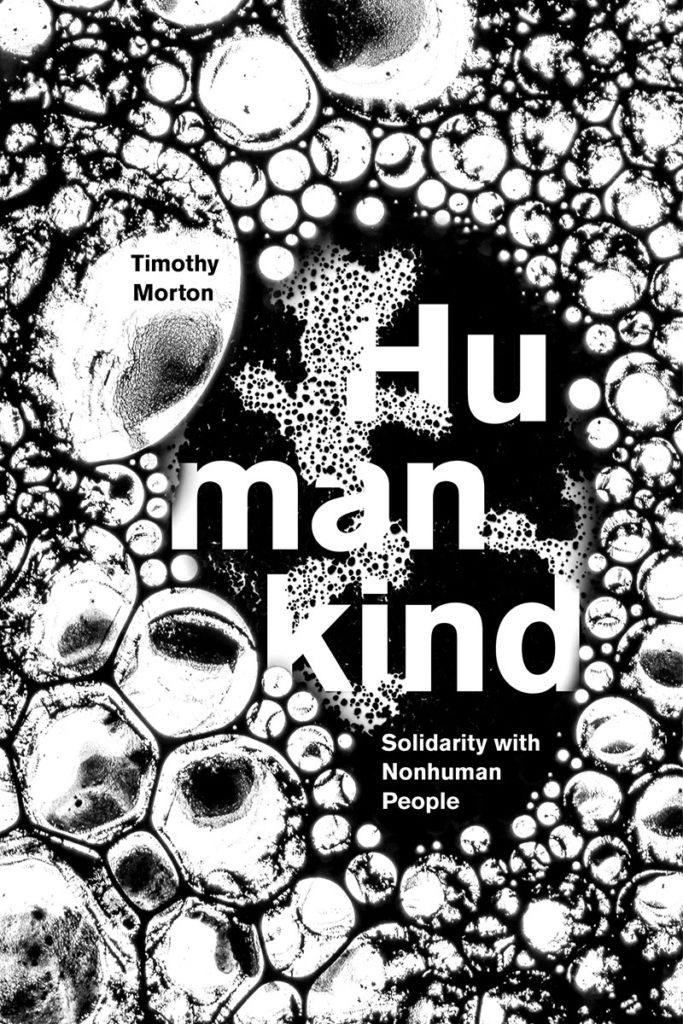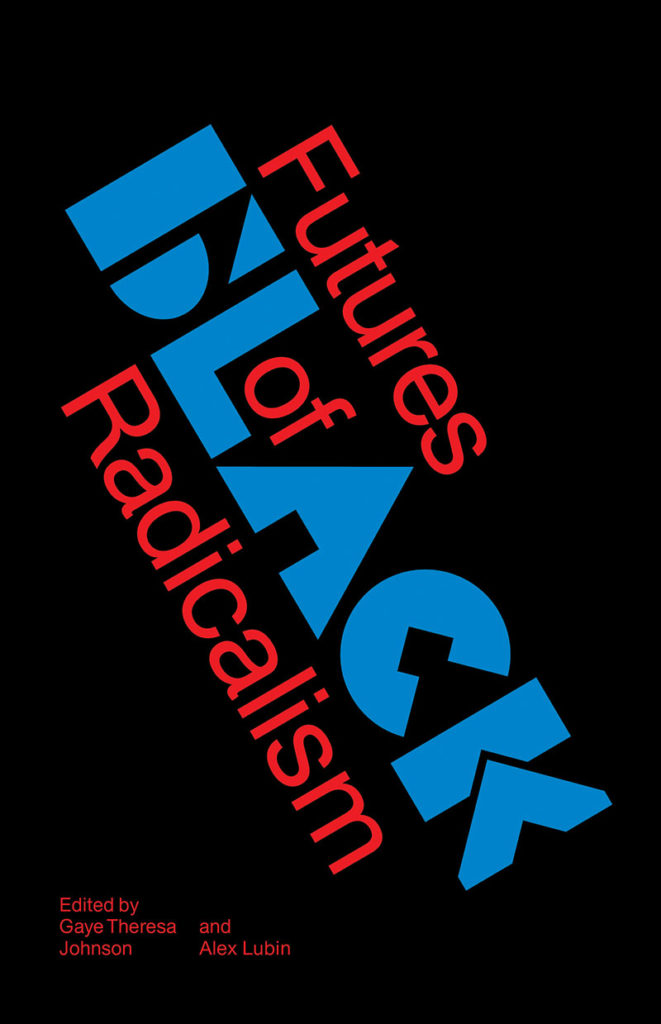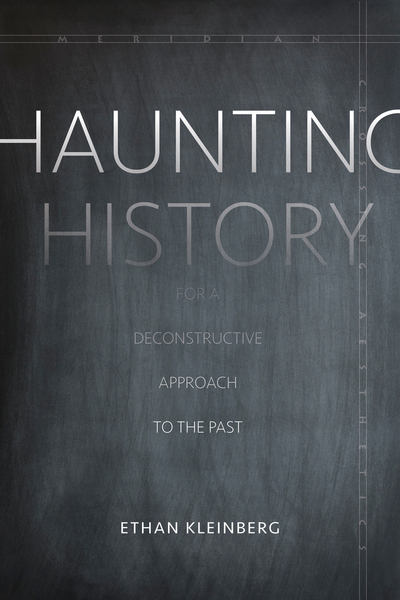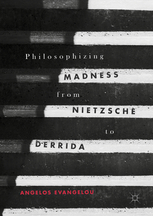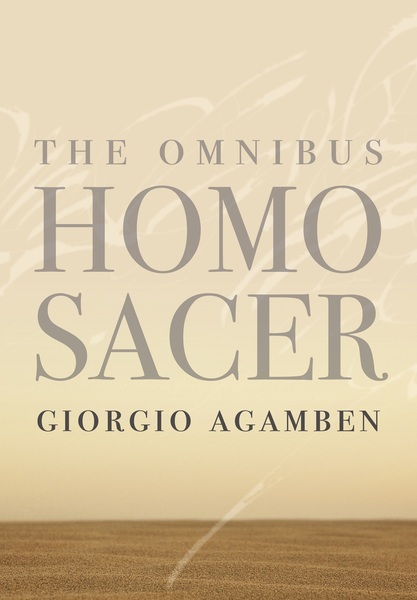If you’re an author or publisher with a forthcoming book, drop us a line at tips@critical-theory.com with the subject “New Book.”
Humankind
“What is it that makes humans human? As science and technology challenge the boundaries between life and non-life, between organic and inorganic, this ancient question is more timely than ever. Acclaimed Object-Oriented philosopher Timothy Morton invites us to consider this philosophical issue as eminently political. It is in our relationship with non-humans that we decided the fate of our humanity. Becoming human, claims Morton, actually means creating a network of kindness and solidarity with non-human beings, in the name of a broader understanding of reality that both includes and overcomes the notion of species. Negotiating the politics of humanity is the first and crucial step to reclaim the upper scales of ecological coexistence, not to let Monsanto and cryogenically suspended billionaires to define them and own them.”
Buy it here.
Futures of Black Radicalism
Edited by Gaye Theresa Johnson and Alex Lubin
“Black rebellion has returned. Dramatic protests have risen up in scores of cities and campuses; there is renewed engagement with the history of Black radical movements and thought. Here, key intellectuals—inspired by the new movements and by the seminal work of the scholar Cedric J. Robinson—recall the powerful tradition of Black radicalism while defining new directions for the activists and thinkers it inspires.
In a time when activists in Ferguson, Palestine, Baltimore, and Hong Kong immediately connect across vast distances, this book makes clear that new Black radical politics is thoroughly internationalist and redraws the links between Black resistance and anti-capitalism. Featuring the key voices in this new intellectual wave, this collection outlines one of the most vibrant areas of thought today.
With contributions from Greg Burris, Jordan T. Camp, Angela Davis, Ruth Wilson Gilmore, Avery F. Gordon, Stefano Harney, Christina Heatherton, Robin D.G. Kelley, George Lipsitz, Fred Moten, Paul Ortiz, Steven Osuna, Kwame M. Phillips, Shana L. Redmond, Cedric J. Robinson, Elizabeth P. Robinson, Nikhil Pal Singh, Damien M. Sojoyner, Darryl C. Thomas, and Françoise Vergès.”
Buy it here.
Haunting History
By Ethan Kleinberg
“This book argues for a deconstructive approach to the practice and writing of history at a moment when available forms for writing and publishing history are undergoing radical transformation. To do so, it explores the legacy and impact of deconstruction on American historical work; the current fetishization of lived experience, materialism, and the “real;” new trends in philosophy of history; and the persistence of ontological realism as the dominant mode of thought for conventional historians.
Arguing that this ontological realist mode of thinking is reinforced by current analog publishing practices, Ethan Kleinberg advocates for a hauntological approach to history that follows the work of Jacques Derrida and embraces a past that is at once present and absent, available and restricted, rather than a fixed and static snapshot of a moment in time. This polysemic understanding of the past as multiple and conflicting, he maintains, is what makes the deconstructive approach to the past particularly well suited to new digital forms of historical writing and presentation.”
Buy it here.
Philosophizing Madness
By Angelos Evangelou
“Drawing connections between madness, philosophy and autobiography, this book addresses the question of how Nietzsche’s madness might have affected his later works. It also explores why continental philosophy after Nietzsche is so fascinated with madness, and how it (re)considers, (re)evaluates and (re)valorizes madness. To answer these questions, the book analyzes the work of three major figures in twentieth-century French philosophy who were significantly influenced by Nietzsche: Bataille, Foucault and Derrida, examining the ways in which their responses to Nietzsche’s madness determine how they understand philosophy as well as philosophy’s relation to madness. For these philosophers, posing the question about madness renders the philosophical subject vulnerable and implicates it in a state of responsibility towards that about which it asks. Out of this analysis of their engagement with the question of madness emerges a new conception of ‘autobiographical philosophy’, which entails the insertion of this vulnerable subject into the philosophical work, to which each of these philosophers adheres or resists in different ways.”
Buy it here.
The Omnibus Homo Sacer
By Giorgio Agamben
“Giorgio Agamben’s Homo Sacer is one of the seminal works of political philosophy in recent decades. A twenty-year undertaking, this project is a series of interconnected investigations of staggering ambition and scope investigating the deepest foundations of every major Western institution and discourse.
This single book brings together for the first time all nine volumes that make up this groundbreaking project. Each volume takes a seemingly obscure and outdated issue as its starting point—an enigmatic figure in Roman law, or medieval debates about God’s management of creation, or theories about the origin of the oath—but is always guided by questions with urgent contemporary relevance.”
Buy it here.

